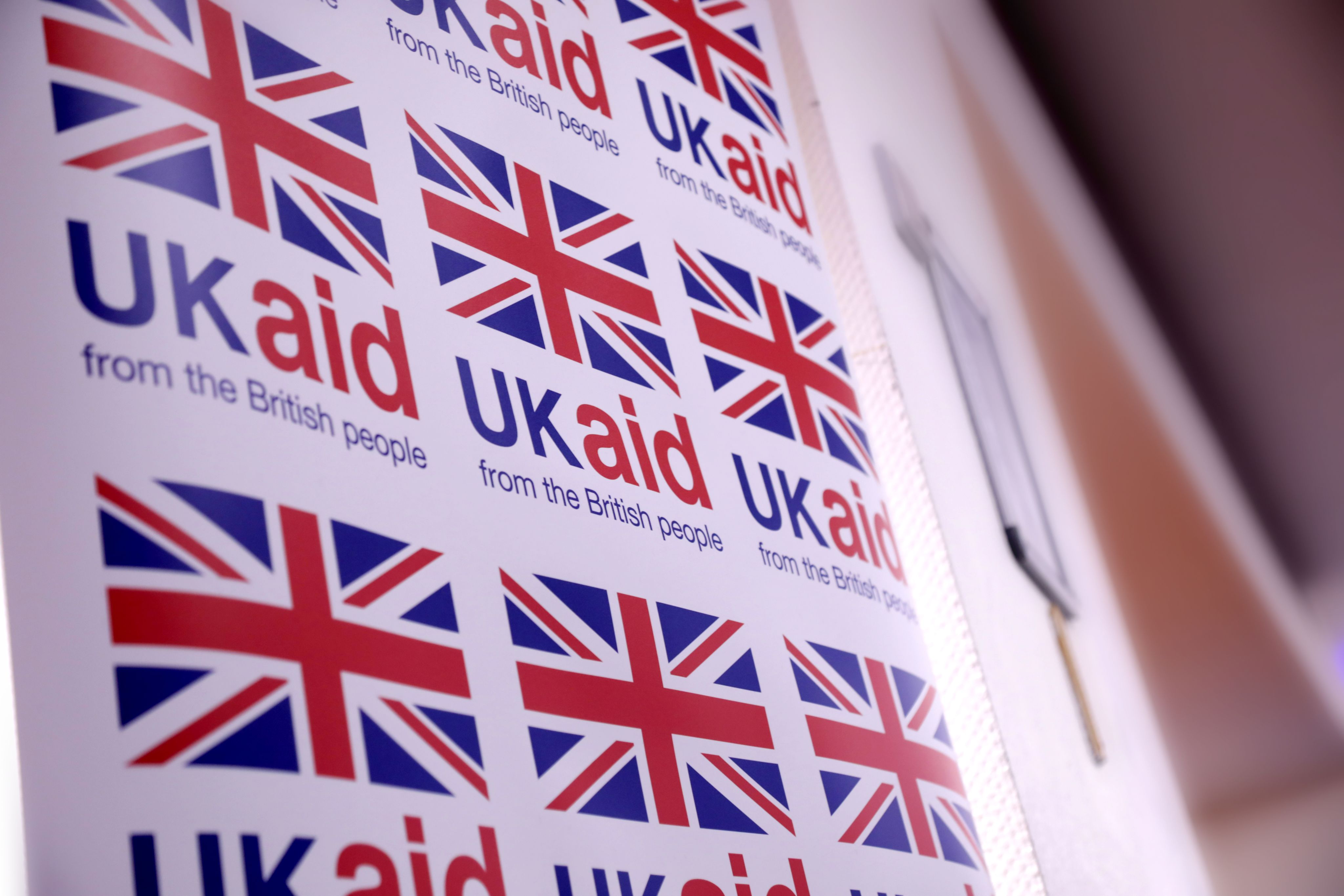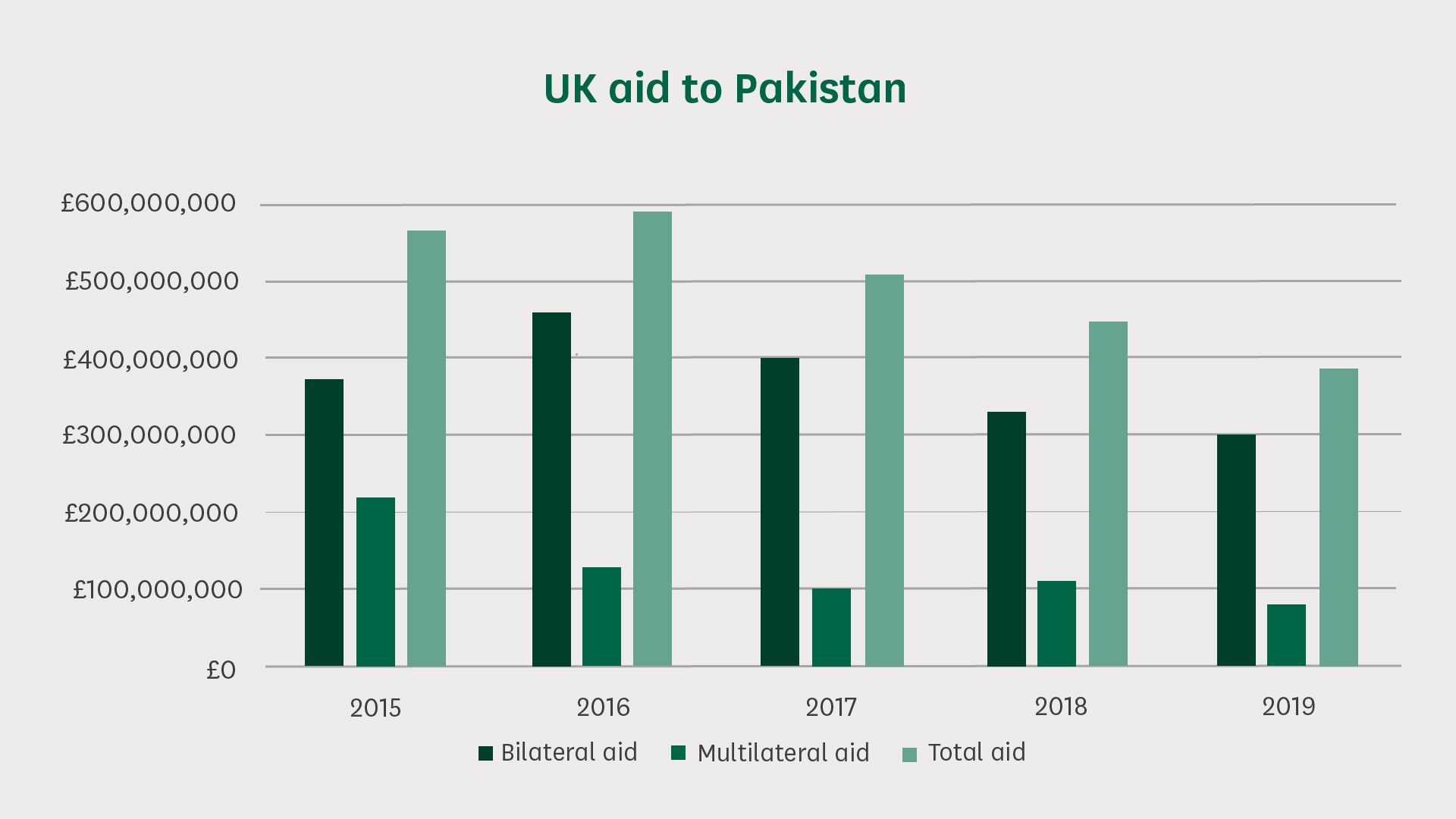UK aid to Pakistan must be more focused
Following cuts to UK aid, the Government should focus its spending in Pakistan on supporting marginalised groups

In 2020, the International Development Committee decided it wanted to know more about:
- the challenges facing Pakistan
- how well UK aid is tackling them
- and how UK aid could be more effective.
We heard from experts from a range of organisations in writing and in person. This is a summary of what they told us.
About Pakistan
While the number of people in poverty in Pakistan had been declining, it increased from 25% to 40% during the covid-19 pandemic. An estimated 88 million people are now living in poverty. This could increase to up to 125 million in the coming years because of the pandemic.
In addition, while Pakistan has made real progress in achieving its goals for development, it continues to face many challenges, including:
- a lack of clean drinking water
- malnutrition
- 22.6 million out-of-school children
- a 50% illiteracy rate, including 2 out of 3 women
- one in 11 children dying before their 5th birthday
- 14,000 women dying in childbirth each year.
Uk aid to Pakistan
The UK has long been a partner to Pakistan in supporting its development through aid programmes. Since 2011, UK Aid has:
- helped over 10 million children in primary school
- supported the delivery of nearly 1 million births by skilled attendants
- provided cash transfers to help 5.2 million of the poorest families meet their basic needs
- reached over 1.7 million new family planning users and prevented 4,900 maternal deaths, over 3.49 million unwanted pregnancies, and 490,000 unsafe abortions.
From 2015 to 2019, Pakistan was the country that received the most aid from the UK, even though the amount of aid it received fell from £463 million to £305 million in that time.
Aid cuts in 2020 saw Pakistan drop six places in the ranking. It received £200 million in aid spending, which resulted in aid programmes being delayed and some even cancelled.

We heard that the reduction in UK aid spending in Pakistan could block progress towards tackling the challenges facing the country, especially because Pakistan faced this reduction in aid as the covid-19 pandemic hit the country.
Covid-19 in Pakistan
There were over 1.5 million cases of covid-19 in Pakistan, which caused 30,000 deaths. Over half of its 220 million population are now vaccinated. Pakistan has received around 100 million vaccines from China and 100 million from COVAX, the international vaccine sharing scheme of which the UK is a participant.
As a result of the pandemic and resulting lockdowns:
- the Pakistani economy shrunk by 0.4%
- another 11 million people were pushed into poverty
- 51 million children were affected, including one million children who permanently dropped out of school.
Challenges for
marginalised groups
in Pakistan
During our inquiry, we heard concerns about the impact on marginalised groups of the reduction in UK aid to Pakistan. Some of the issues we heard about were:
- The rise in discrimination against religious minorities, and the recent rise in popularity of religious extremist political parties in Pakistan.
Rahul Roy-Chaudry, Senior Fellow for South Asia at International Institute for Strategic Studies
Rahul Roy-Chaudry, Senior Fellow for South Asia at International Institute for Strategic Studies
- The "serious loss of opportunity for women's lives" caused by the cancellation of programmes on women's education and economic empowerment caused by the aid cuts.
Lord Ahmad of Wimbledon, Minister of State for South Asia, the United Nations and the Commonwealth, Foreign, Commonwealth and Development Office, and the Prime Minister’s Special Representative on Preventing Sexual Violence in Conflict
Lord Ahmad of Wimbledon, Minister of State for South Asia, the United Nations and the Commonwealth, Foreign, Commonwealth and Development Office, and the Prime Minister’s Special Representative on Preventing Sexual Violence in Conflict
- Fewer girls in education compared to boys.
Amir Ramzan, Country Director, Pakistan, British Council
Amir Ramzan, Country Director, Pakistan, British Council
- Family planning, with 3.7 million unintended pregnancies every year.
Asma Balal, Country Director, Marie Stopes Society, Pakistan
Asma Balal, Country Director, Marie Stopes Society, Pakistan
We also heard how:
- People with disabilities in Pakistan can struggle to get a proper education due to prejudice in society.
- LGBT+ people cannot live openly and face discrimination and violence in society.
Improving UK aid
Experts told us about the difficulties faced in delivering aid programmes in Pakistan. We heard that:
- UK aid has not always tackled all aspects of a development challenge, and different aid partners are not always successful at working together to run aid programmes which complement each other.
- There are increasing restrictions on aid organisations in Pakistan. Eighteen international aid organisations working on poverty reduction and human rights were expelled from the country in 2018. State authorities sometimes monitor and harass the remaining organisation. Now, local aid organisations are facing restrictions if they receive any foreign funding.
We also heard ways that UK aid could be more effective. This included:
- The need for a rounded approach to tackle many of the challenges in Pakistan. For example, while work on girls’ education is very important, malnourished girls struggle to succeed in education programmes. Increasing girls’ participation in education therefore also means tackling malnutrition.
- The benefit of longer-term projects. Aid programmes that worked over multiple years had better results and value for money than short-term projects. Short-term aid projects could also lower trust in UK aid, as communities sometimes felt abandoned after the aid project had ended and the organisation running the programme left the community.
- Higher trust in UK aid when local aid organisations deliver aid programmes rather than larger international aid organisations. This is due to their connection with the local communities. Some local aid organisations don’t have the expertise or capacity to deliver large aid programmes, especially in emergencies. But experts told us that local and bigger aid organisations can work together to get the best of both worlds.
What should
the Government do?
Based on what we have heard during our inquiry, we have made recommendations to the Government on how UK aid could better help tackle development challenges in Pakistan. These include:
1.With a reduced budget, the UK Government should target its aid spending towards marginalised groups to help them achieve their full potential.
2.UK aid should focus on aid projects which are joined up with other aid programmes to tackle all aspects of a development challenge. These programmes should be long-term rather than short-term, and carried out by local organisations rather than large international organisations where possible, possibly encouraging partnerships between small and large organisations.
3.The Foreign Office should work with the Pakistani Government to ensure that aid organisations, especially the UK's aid partners, are able to undertake development work without barriers.
4.The Foreign Office should adopt an explicit focus on the impact of aid programmes on marginalised and minority communities and develop further specific aid programmes in countries targeted at these groups.
5.The UK Government should support Pakistan to cope with the influx of refugees from Afghanistan.
What happens next?
The Government must now respond to our report.
Our report, UK aid to Pakistan, was published on 29 April 2022.
Detailed information from our inquiry can be found on our Committee website.
The International Development Committee was established to scrutinise the spending, administration and policies of the Department for International Development (DFID) and monitors the expenditure of Official Development Assistance (ODA) by other UK government departments.
Images courtesy of DFID via Flickr

![House of Commons International Development Select Committee membership as of 30 June 2021. Link shows current select committee membership [link to relevant page on https://committees.parliament.uk/committee/98/international-development-committee/membership/ ]](./assets/C6qK200Sc3/international-development-02-2560x1440-1-2560x1440.jpeg)